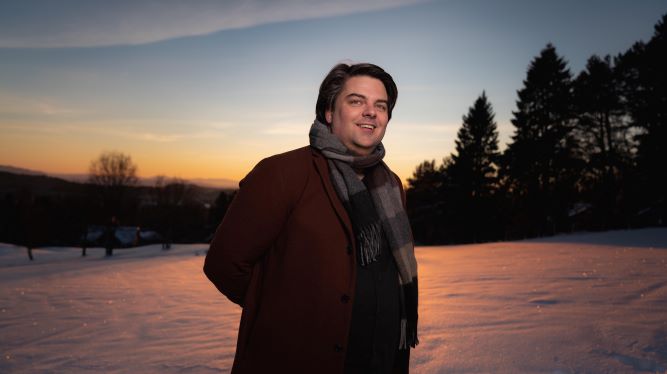About
Norwegian composer Kim André Arnesen specialises in choral music * Has a growing reputation on both sides of the Atlantic * Music is written in an accessible melodic style and demonstrates a richly expressive vein * Grew up in Trondheim, now Oslo-based * Sang as chorister at the Nidaros Cathedral and studied at the Trondheim Music Conservatory * Composed music for the award-winning TV special Christmas in Norway in 2013 * In the USA his music has been performed at Carnegie Hall in conjunction with DCINY, by the St Olaf Choir in Minnesota, at the Oregon Bach Festival and at The White House for president Barack Obama * Composer residencies including with the Denver-based choral ensemble Kantorei for 2015/16 season * Seasonal music includes Nordic Christmas and I will light candles this Christmas * The Holy Spirit Mass, commissioned by the National Lutheran Choir for the 500th anniversary of the Reformation, performed in Washington, Minneapolis and Rome in 2017/18
Works by Kim André Arnesen include:
The Holy Spirit Mass (2017) for SATB chorus, piano and strings
Ubi caritas et amor (2017) for SATB chorus a cappella
Voices of the Silenced (2019) for SATB chorus, piano and strings
Looking Ahead: new setting of the Stabat Mater for the Haderslev Cathedral Girls Choir in Denmark (19 Mar).
"Arnesen’s music is lovely and worth hearing... Sacred and secular, there is much to admire.”— American Record Guide
Foto Credit: © Ole Wuttudal
Thank you Boosey & Hawkes, publisher of Kim’s music, for your kind permission to use the materials!

